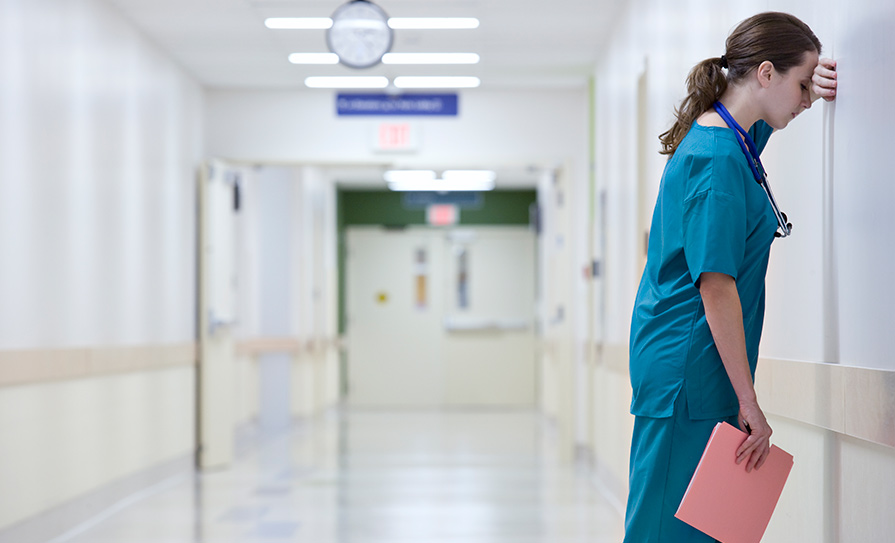
In medicine, the harsh reality is, one day, what you do or don’t do will lead to the death of a patient
Is it the learning, studying, cramming for exams, shoving all of the information into your brain and hoping it doesn’t fall out your ears?
Is it the 36-hour shifts, sleeping on dubious mattresses in dingy on-call rooms full of other people’s detritus?
Is it the brain gymnastics required to listen, hear, understand, and make sense of a patient’s story, while also figuring out how the hell you are going to sort all of this out in the space of 15 minutes?
No. The hardest part is that, some day, something you do or don’t do will end up leading to a person’s death. Whether or not you are ever actually directly responsible for the loss of a person’s life, your actions will have been adjacent to the sequence of unfortunate events that resulted in a human being dying earlier than they should or could have.
I have no idea how murderers feel, in the hours and days after they have stood over a dead body, bloody knife in their hand. My understanding is that few murders are meticulously planned pre-meditated acts; most of them are the result of a confluence of anger, aggression, exposure to violence, and disordered thinking. That is not to excuse them in any way; it is just to reflect that a number of things need to go wrong in a person’s life for them to end up in a situation where they actively take another person’s life.
We often quote the ‘Swiss cheese model’ when we speak about harmful events that occur in healthcare. A number of unsynchronised minor errors can occur during a patient’s journey through a specific healthcare pathway, each of which can cause a degree of harm, but without a catastrophic outcome. However, if those errors line up and compound each other, with no opportunity for the previous mistake to be reversed or ameliorated, the result is a deadly cascade of unstoppable consequences.
When a patient dies under our care, one of our first instinctive reactions is to mentally scan every interaction we personally had with them, to see where we went wrong. Most doctors I know have a tendency to automatically assume the worst, to immediately doubt the quality of the care they gave and undertake a frantic mental audit of all of the decisions they made and actions they took. Some doctors cover up this self-doubt with braggadocio and swagger, re-telling the story to themselves and others that “no one could have done anything more”. Other doctors choose deflection to assuage their feelings of guilt, and cast overt and covert aspersions on other colleagues’ roles in the event. A significant number of doctors internalise the deep sense of inadequacy and failure and become increasingly depressed, some even to the point of suicide.
Many of us will have specific patients in mind when we talk about adverse events or harms in healthcare. We often remember their names, and can visualise exactly where we were when it became apparent that things had gone terribly wrong. Some of us will experience trauma-related physical symptoms – dry mouth, palpitations – when we think back over the tragic event. Frequently, these experiences are swept under the carpet, with little or no opportunity to discuss our feelings with colleagues or superiors.
Occasionally, the details of the case come under an intense spotlight, such as in a coroner’s court or in the course of litigation proceedings. These situations bring every doctor’s worst nightmare to life, with a forensic examination of every step and misstep, every right and wrong decision that was made. Whether or not the tone of the proceeding is overtly accusatory, the doctor will almost inevitably feel a weight of guilt bearing down on them and will re-run the self-blaming reel that has been circulating in their consciousness since the day the patient died.
The impact of these experiences on doctors needs to be acknowledged, while also being fully attuned and sympathetic to the immeasurable grief and loss experienced by the patient’s family.
It is extraordinarily rare that a doctor sets out to intentionally bring about a person’s death. With the exception of Harold Shipman, the handful of doctors who have been convicted on unlawful killing have done so in the (perhaps misguided) belief that they were helping the person who died. We don’t stand over the patient with a bloody knife in our hand, but we feel intense guilt, anger, despair, and shame, which we are frequently left to deal with by ourselves.





Leave a Reply
You must be logged in to post a comment.